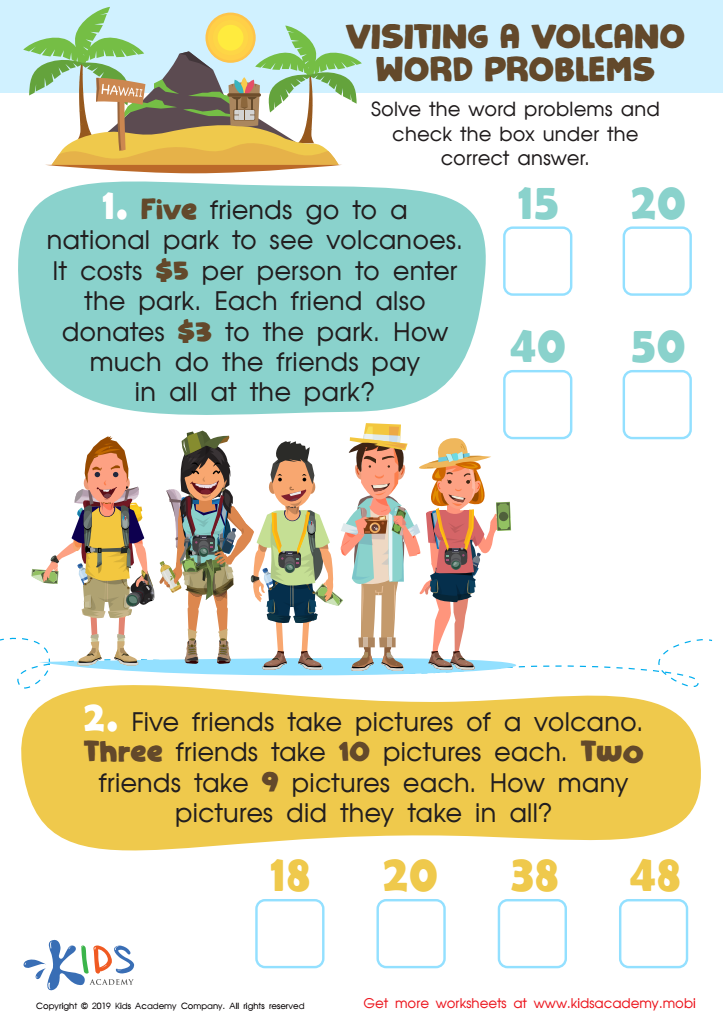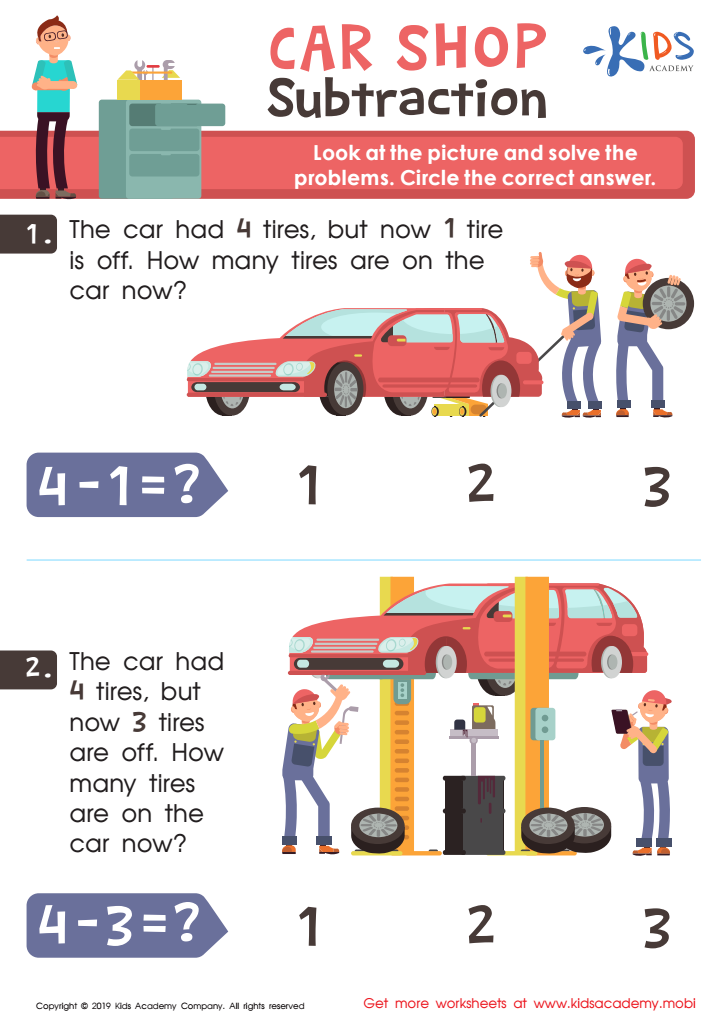Understanding word problems Worksheets for Ages 7-9
3 filtered results
-
From - To
Unlock your child's potential in math with our "Understanding Word Problems Worksheets for Ages 7-9." These engaging worksheets encourage critical thinking and problem-solving skills by guiding young learners through a variety of real-world math scenarios. Designed to boost confidence and comprehension, each worksheet simplifies complex word problems into manageable steps. Perfect for classrooms and at-home learning, our printable activities cater to different learning styles to ensure every child achieves success. Transform math practice into a fun and interactive experience, and watch your child's problem-solving abilities soar! Explore this essential resource at Kids Academy today.


Visiting a Volcano Word Problems Worksheet


Car Shop Subtraction Worksheet
Understanding word problems is essential for children aged 7-9 because it helps bridge the gap between abstract mathematical concepts and real-world applications. At this developmental stage, kids typically transition from concrete to more abstract forms of thinking. Grasping how word problems work fosters critical thinking and problem-solving skills.
Parents and teachers should care about this aspect of learning for several reasons. First, word problems help children practice reading comprehension and mathematical reasoning simultaneously. This dual engagement ensures that students develop not only their math skills but also their capacity to extract and process information from written text.
Second, mastering word problems introduces students to essential life skills. Life rarely presents problems in the form of straightforward equations; rather, it involves complex scenarios that require identifying relevant data, disregarding irrelevant information, and applying appropriate strategies to find solutions.
Third, proficiency with word problems builds confidence and academic resilience. Children who can successfully tackle word problems feel more capable and motivated, which positively affects their performance in other academic areas.
In summary, understanding word problems is a vital stepping stone for cognitive development, practical life skills, and overall academic confidence. Early investment in this skill equips children with a robust toolkit for future learning and problem-solving.
 Assign to My Students
Assign to My Students





















